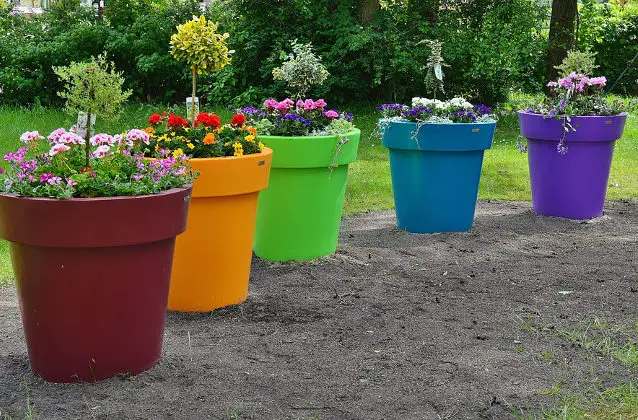Jonathan Dodd’s latest column. Guest opinion articles do not necessarily reflect the views of the publication. Ed
I once wrote a short story about a man who bought a packet of seeds from a garden centre. He also bought a pot, and some compost, and a trowel, because he understood that you need those things too, if you’re going to grow something. He took all these things home, filled the pot, planted a seed, watered it, and a shoot appeared, followed by a leaf. Gradually, the plant grew, and finally a beautiful flower emerged. It looked just like the picture on the seed packet.
That, of course, was only the beginning of the story. This was a man with a slightly off-centre approach to life. I suppose all stories need to feature a person who’s like this, so that someone can do something unexpected. In this way stories can surprise us and challenge the way we’ve got used to look at things.
I’m not complaining at all
This man, because of who he was, took the pot with the flower in it back to the garden centre and placed it on the Customer Service Desk. And next to it, he placed one of the seeds that he hadn’t planted. After a while a girl arrived, took in the plant and the seed and the not-unfriendly face of the man, and gave him her best Customer Service smile.
“What can I do for you today?” she asked brightly.
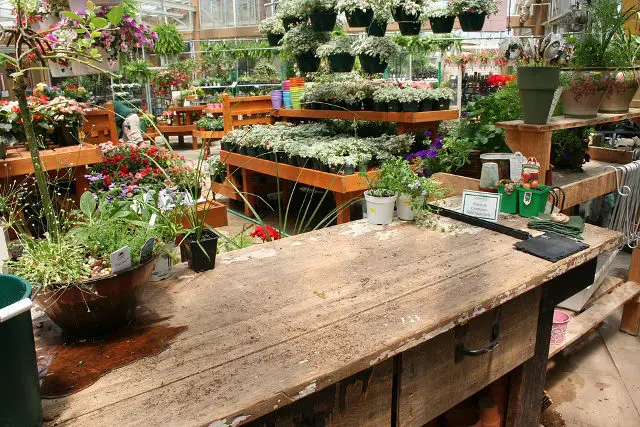
The man explained what he had done, the buying and the following of instructions, and the result.
“What I want to know is this – How did a seed like this become a beautiful flower like this?” And he pointed to the relevant items with an unaccusing finger.
The girl looked puzzled. “Is there something wrong?”
“No, not at all. It all worked exactly as it said it would.”
She became more puzzled. “So what’s the problem. What are you complaining about?”
“I’m not complaining at all. I’m very happy with my flower.”
How did it know how to do it?
“I don’t understand. If you’re happy with your purchase, why are you complaining about it?” she said.
“I’m not. I’m just asking how it worked.”
At this point she pressed the button on her microphone and asked for a Supervisor. Her smile became a little more brittle.
When the Supervisor arrived, he explained it all again. The same sort of questions and answers were exchanged, and finally the supervisor thought she knew what he was asking.
“So the seed here needs somewhere warm and damp, filled with seed food, so it can wake up and push a root out. The it needs sunshine so it can grow out of the soil, like this.” She also used her finger to point very carefully at each item. She did a good job, she thought.
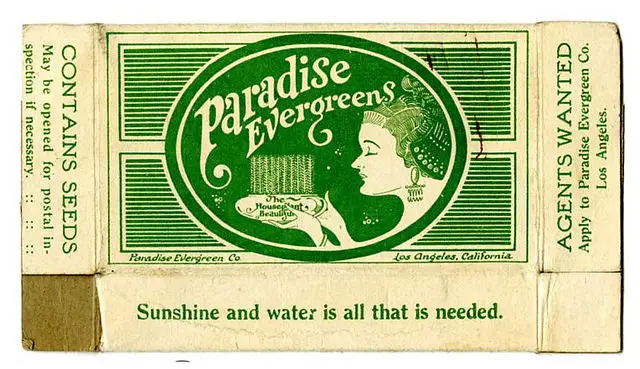
“Yes, yes, I know all that. But how did it do that? How did it know how to do it?”
“Well, it just did. It’s a seed!”
My story went on for a while like that. In a literary sense, it wasn’t a good story. But I still like the idea. They summoned a gardening expert, who explained about chemicals and temperature and growing conditions, and the man said he knew all that, but he wanted to know how the process actually happened, not what happened. Then they suggested he talk to a biology teacher, who went into more detail, but was still puzzled by what the man wanted to know.
Could you make one for me
A session was arranged with a University specialist, a scientist who was able to describe it all in extraordinary detail, down to the atomic level. The man listened intently, thanked him politely, the asked the question again. The scientist looked exasperated.
“I’ve just given you all the information there is. What more do you want?”
“OK. Here’s a seed. Do you know what’s in the seed?”
“Yes, I could give you precise information on exactly what chemicals are in there, and how it’s structured.”
“So could you make one for me?”
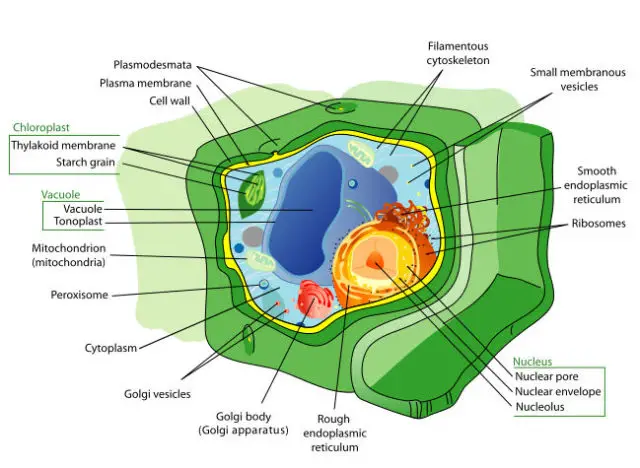
“No. Only a plant can do that.”
“And could you tell me exactly what’s in this plant? And could you make a plant for me?”
The scientist laughed, because the penny finally dropped.
“Yes, and no.” I can tell you what’s in the plant, but I can’t build you one, and even if I could, it would only look like a plant, it wouldn’t be alive. It wouldn’t be able to make you a seed like that.”
The man’s face fell. “So nobody knows?”
“I think you’re going to have to talk to the Comparative Religion department.”
This is a question we might never be able to answer
I think you could probably guess what happened next in my story. All the religious experts talked about the Creation and the unknowability at the heart of everything, and they all professed to having the Answer, as long as you believe first. So he went to the philosophy department, where he got a better quality of argument and more logic, and most of them very cheerfully admitted that they had no answers for him. The one he liked the best simply smiled and told him that this is a question we might never be able to answer.

The story ended with him talking to an artist, who didn’t care about where it came from, he just adored the beauty and the colours and the wonderful sense of peace the flower gave him, and he painted him a picture of it, because, as he so rightly knew, it wouldn’t last, and otherwise it would become just a memory.
It was a terrible story
As I said, it was a terrible story. No characters to speak of, no real plot, and no resolution. But, as I always suspected, it confirms things I’ve always known and understood. There are no complete answers. We can know an awful lot about things, how they behave and what we can do with them, but at the end of the day we have no idea what they really are or why they behave the way they do. And if that’s true of the things around us, how can we ever expect to understand anything or anyone else?

What we can do is to remember two things. First, nobody else knows any of the answers either, no matter what they tell you. And second, you have just as good a chance of being right as anyone else, as long as you put some thought in and keep asking questions. This applies to everything, from the so-called ‘big’ questions to the tiniest little things. But an opinion isn’t an answer, and doesn’t deserve to be taken as seriously as a belief based on information and thought. There is no substitute for hard work and effort, and above all, honesty.
You could just admit you don’t know
Keep asking those questions. People who get exasperated with your questions usually don’t know the answers, and a lot of them don’t want to admit that. One thing that would make the world a better place would be for people to admit they don’t know things, rather than try to bluff it out, and pretend they do. I wish everyone, especially politicians, would learn that.
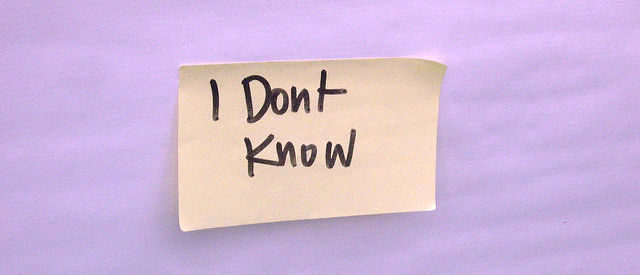
A little humility can go a long long way.
If you have been, thank you for reading this, despite the missing apostrophe in the last picture.
Image: Pixabay under CC BY 2.0
Image: Pixabay under CC BY 2.0
Image: chs_commons under CC BY 2.0
Image: public domain
Image: Public Domain
Image: markmorgantrinidad under CC BY 2.0
Image: cowbite under CC BY 2.0

